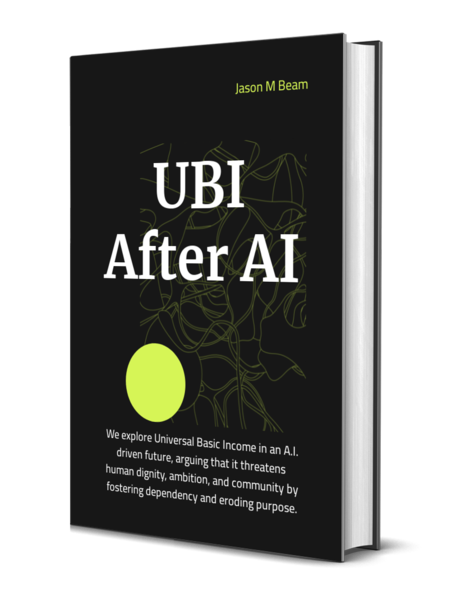
"UBI After AI" critically examines the potential societal pitfalls of Universal Basic Income in a future...
Imagine a world where artificial intelligence governs factories, drives innovation, and manages logistics with flawless precision—a world where human labor is obsolete, and every citizen receives a Universal Basic Income (UBI) to sustain their needs. On the surface, it appears to be a utopia: no poverty, no grueling workdays, and endless leisure. Yet beneath this veneer of comfort lies a simmering dystopia. UBI After AI is not a celebration of this future but a dire warning: the very systems touted as salvation may dismantle the pillars of human society, eroding ambition, identity, and freedom in ways history has already foreshadowed.
History whispers cautionary tales. The 20th century’s welfare systems, though well-intentioned, often corroded the communities they aimed to protect. The African American experience, marred by policies that fractured family structures and marginalized paternal roles, reveals a haunting truth: when survival is decoupled from agency, purpose withers. UBI risks repeating this tragedy on a planetary scale, creating generations adrift in a sea of purposelessness.
Psychologically, humans are wired to strive. Studies of lottery winners and trust-fund heirs reveal a paradox: financial security without effort breeds emptiness, not fulfillment. UBI’s promise of risk-free existence threatens to sever the link between struggle and self-worth, plunging societies into a mental health crisis of unprecedented scope. Meanwhile, economic illusions of “phantom prosperity” mask inflation and resource hoarding, trapping recipients in stagnant poverty while elites consolidate power.